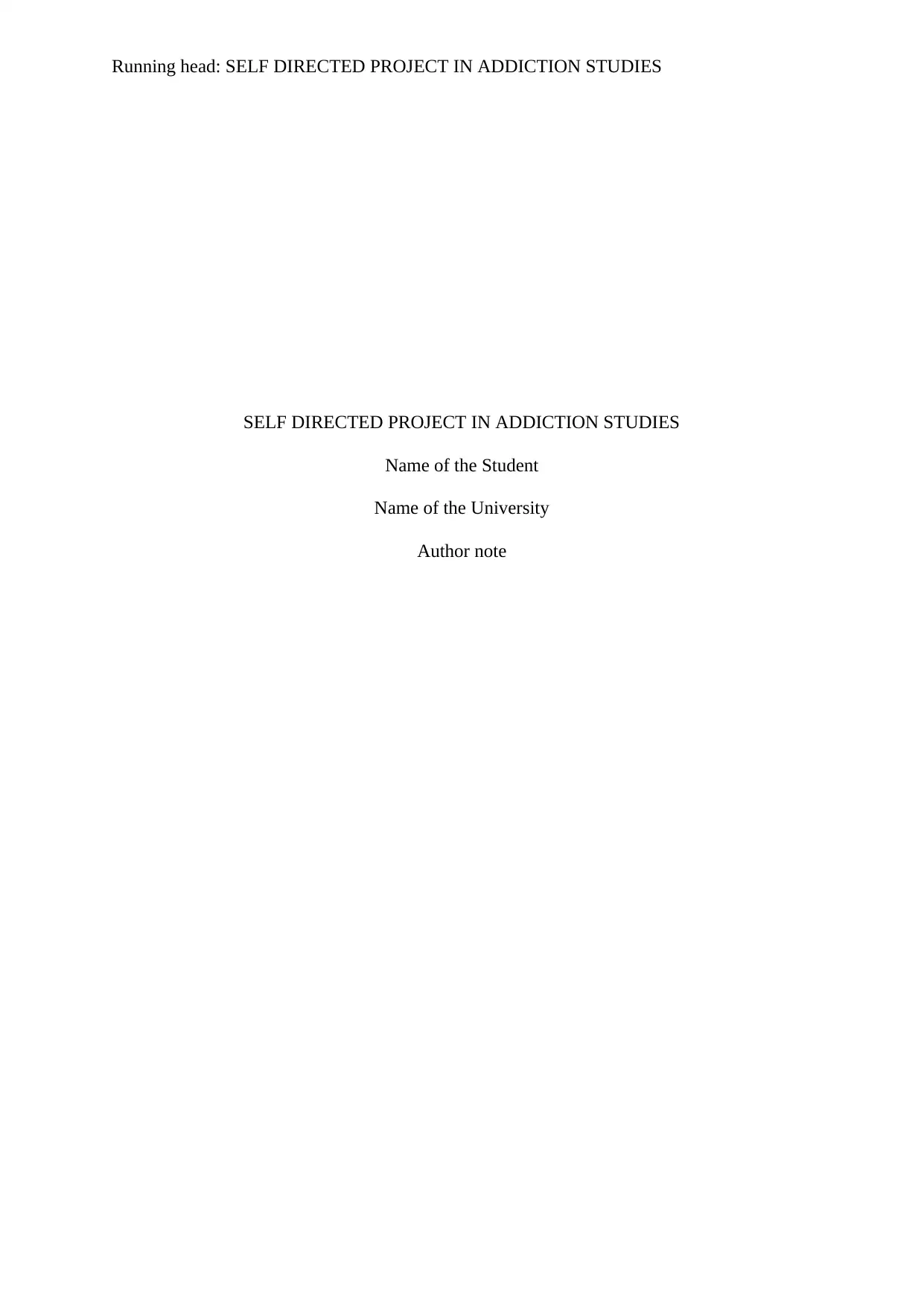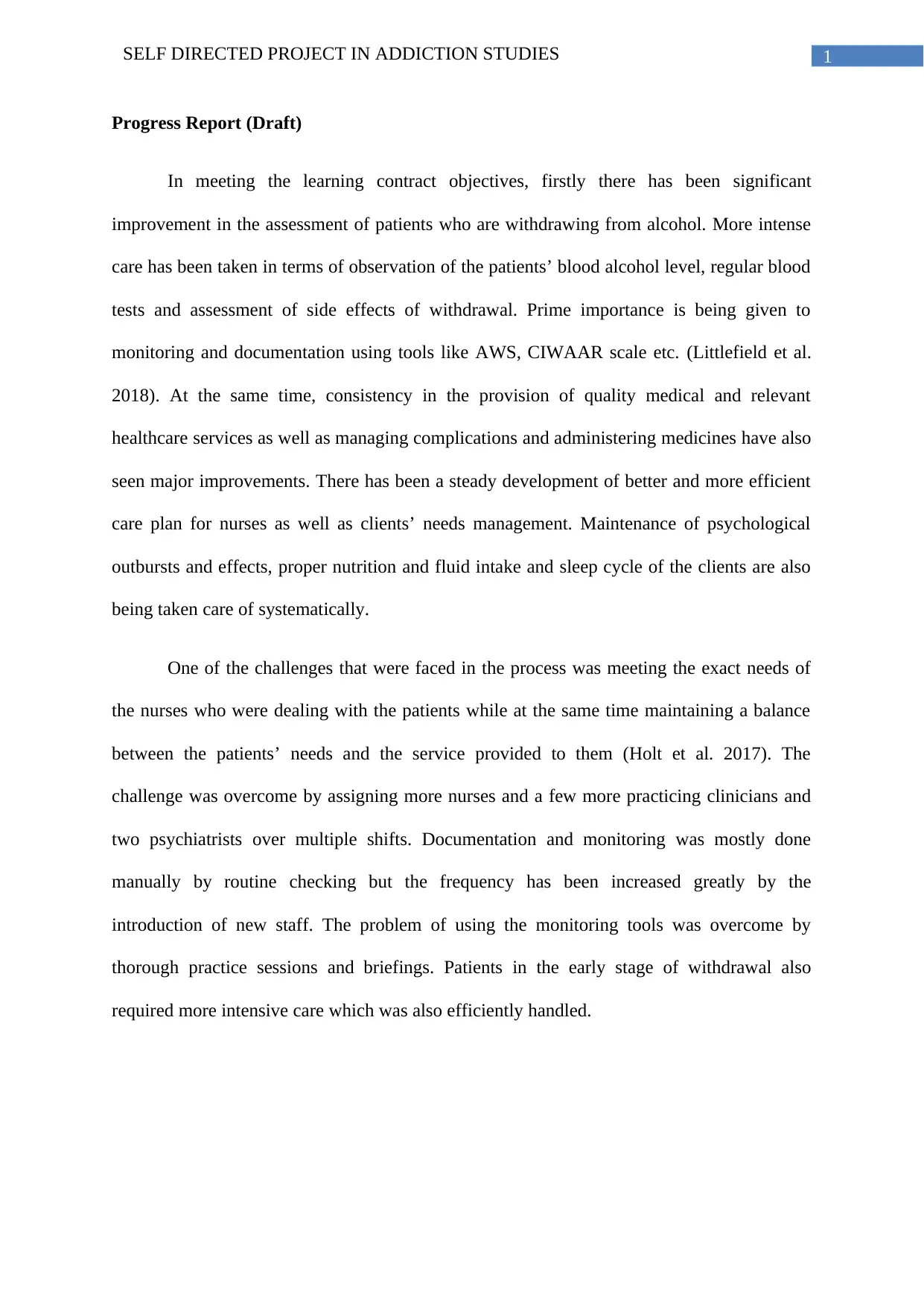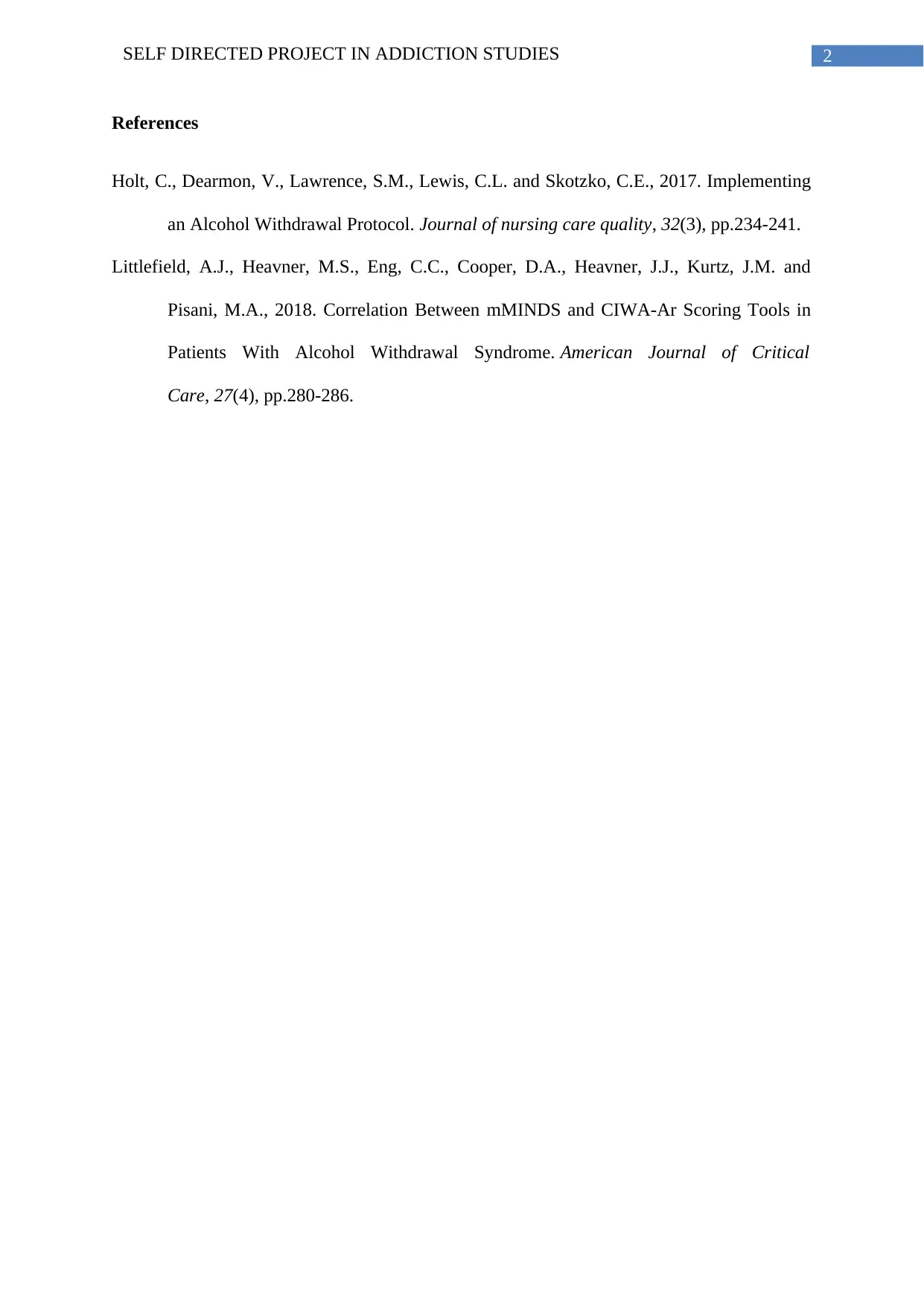Self-Directed Project in Addiction Studies: Progress Report (CNA 550)
VerifiedAdded on 2022/11/17
|3
|433
|23
Report
AI Summary
This progress report details a student's self-directed project in addiction studies, focusing on the management of clients withdrawing from alcohol in a mental health ward. The report outlines improvements in patient assessment, including the use of tools like AWS and CIWA-AR scales, and enhancements in healthcare services such as monitoring blood alcohol levels, administering medications, and managing complications. Challenges faced, such as meeting the needs of both patients and nurses, were addressed by increasing staffing and providing training. The report also references key literature and identifies future steps in portfolio development, highlighting the importance of consistent care, psychological support, and nutritional management for patients undergoing alcohol withdrawal. The report demonstrates adequate progress in achieving the nominated objectives; identification of challenges encountered and next steps in portfolio development.
1 out of 3








![[object Object]](/_next/static/media/star-bottom.7253800d.svg)